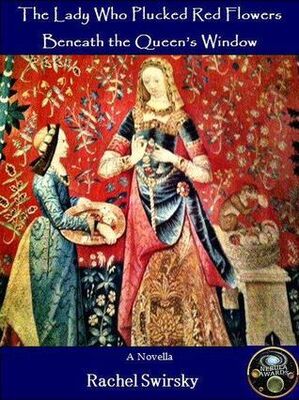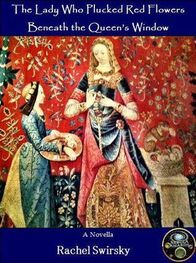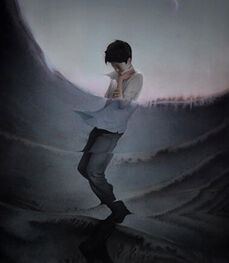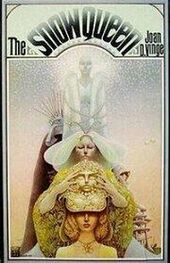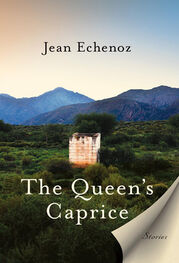What I’d learned from the unrecognizable maps and scattered constellations was that the wage of eternity was forgetfulness. I was lonely, achingly lonely. Besides, I had begun to like Misa’s fumbling chatter. She had reawakened me to light and touch—and even, it seemed, to wonder.
If I was to stay, I told Misa, then she must understand that I’d had enough of worms and their attempts at magic. I did not want them crowding my time in the light.
The corners of Misa’s mouth drew downward in disapproval, but she answered, “The academy puts us at the crossroads of myriad beliefs. Sometimes we must set aside our own.” She reached out to touch me. “You’re giving us a great gift by staying. We’ll always respect that.”
Misa and I worked closely during my first days at the academy. We argued over everything. Our roles switched rapidly and contentiously from master to apprentice and back again. She would begin by asking me questions, and then as I told her about what I’d learned in my matriline’s locked rooms, she would interrupt to tell me I was wrong, her people had experimented with such things, and they never performed consistently. Within moments, we’d be shouting about what magic meant, and what it signified, and what it wanted—because one thing we agreed on was that magic was a little bit alive.
Misa suspended her teaching while she worked with me, so we had the days to ourselves in the vast salon where she taught. Her people’s magic was more than superficially dissimilar from mine. They constructed their spells into physical geometries by mapping out elaborate equations that determined whether they would be cylinders or dodecahedrons, formed of garnet or lapis lazuli or cages of copper strands. Even their academy’s construction reflected magical intentions, although Misa told me its effects were vague and diffuse.
“Magic is like architecture,” she said. “You have to build the right container for magic to grow in. The right house for its heart.”
“You fail to consider the poetry of magic,” I contended. “It likes to be teased with images, cajoled with irony. It wants to match wits.”
“Your spells are random!” Misa answered. “Even you don’t understand how they work. You’ve admitted it yourself. The effects are variable, unpredictable. It lacks rigor!”
“And accomplishes grandeur,” I said. “How many of your scholars can match me?”
I soon learned that Misa was not, as she claimed, an unimportant scholar. By agreement, we allowed her female pupils to enter the salon from time to time for consultations. The young women, who looked startlingly young in their loose white garments, approached Misa with an awe that verged on fear. Once, a very young girl who looked barely out of puberty, ended their session by giving a low bow and kissing Misa’s hand. She turned vivid red and fled the salon.
Misa shook her head as the echoes of the girl’s footsteps faded. “She just wishes she was taking from Olin Nimble.”
“Why do you persist in this deception?” I asked. “You have as many spells in the library as he does. It is you, not he, who was asked to join the academy as a scholar.”
She slid me a dubious look. “You’ve been talking to people?”
“I have been listening.”
“I’ve been here a long time,” said Misa. “They need people like me to do the little things so greater minds like Olin Nimble’s can be kept clear.”
But her words were clearly untrue. All of the academy’s scholars, from the most renowned to the most inexperienced, sent to Misa for consultations. She greeted their pages with good humor and false humility, and then went to meet her fellow scholars elsewhere, leaving her salon to me so that I could study or contemplate as I wished.
In the Land of Flowered Hills, there had once been a famous scholar named The Woman Who Would Ask the Breeze for Whys and Wherefores. Misa was such a woman, relentlessly impractical, always half-occupied by her studies. We ate together, talked together, slept together in her chamber, and yet I never saw her focus fully on anything except when she was engrossed in transforming her abstract magical theories into complex, beautiful tangibles.
Sometimes, I paused to consider how different Misa was from my first love. Misa’s scattered, self-effaced pursuit of knowledge was nothing like Rayneh’s dignified exercise of power. Rayneh was like a statue, formed in a beautiful but permanent stasis, never learning or changing. Misa tumbled everywhere like a curious wind, seeking to understand and alter and collaborate, but never to master.
In our first days together, Misa and I shared an abundance of excruciating, contentious, awe-inspiring novelty. We were separated by cultures and centuries, and yet we were attracted to each other even more strongly because of the strangeness we brought into each other’s lives.
The academy was controlled by a rotating council of scholars that was chosen annually by lots. They made their decisions by consensus and exercised control over issues great and small, including the selection of new mages who were invited to join the academy as scholars and thus enter the pool of people who might someday control it.
“I’m grateful every year when they don’t draw my name,” Misa said.
We were sitting in her salon during the late afternoon, relaxing on reclining couches and sipping a hot, sweet drink from celadon cups. One of Misa’s students sat with us, a startle-eyed girl who kept her bald head powdered and smooth, whom Misa had confided she found promising. The drink smelled of oranges and cinnamon; I savored it, ever amazed by the abilities of my strange, straw body.
I looked to Misa. “Why?”
Misa shuddered. “Being on the council would be… terrible.”
“Why?” I asked again, but she only repeated herself in a louder voice, growing increasingly frustrated with my questions.
Later, when Misa left to discuss a spell with one of the academy’s male scholars, her student told me, “Misa doesn’t want to be elevated over others. It’s a very great taboo for her people.”
“It is self-indulgent to avoid power,” I said. “Someone must wield it. Better the strong than the weak.”
Misa’s student fidgeted uncomfortably. “Her people don’t see it that way.”
I sipped from my cup. “Then they are fools.”
Misa’s student said nothing in response, but she excused herself from the salon as soon as she finished her drink.
The council requested my presence when I had been at the academy for a year. They wished to formalize the terms of my stay. Sleepless Ones who remained were expected to hold their own classes and contribute to the institution’s body of knowledge.
“I will teach,” I told Misa, “but only women.”
“Why!” demanded Misa. “What is your irrational attachment to this prejudice?”
“I will not desecrate women’s magic by teaching it to men.”
“How is it desecration?”
“Women’s magic is meant for women. Putting it into men’s hands is degrading.”
“But why!”
Our argument intensified. I began to rage. Men are not worthy of woman’s magic. They’re small-skulled, and cringing, and animalistic. It would be wrong! Why, why, why? Misa demanded, quoting from philosophical dialogues, and describing experiments that supposedly proved there was no difference between men’s and women’s magic. We circled and struck at one another’s arguments as if we were animals competing over territory. We tangled our horns and drew blood from insignificant wounds, but neither of us seemed able to strike a final blow.
“Enough!” I shouted. “You’ve always told me that the academy respects the sacred beliefs of other cultures. These are mine.”
Читать дальше